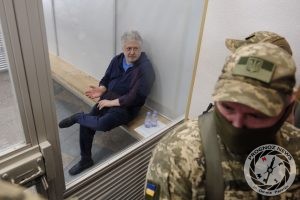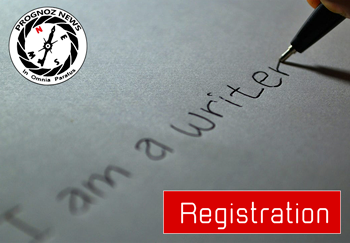Ihor Kolomoisky brought to justice in England

By Matthew Parish, Associate Editor
On 10 November 2025 the High Court in London issued a money judgment in JSC Commercial Bank PrivatBank v Kolomoisky & others, ordering former owners Ihor Kolomoisky and Hennadiy Boholyubov, another Ukrainian oligarch, to pay more than three billion US dollars in damages, interest and costs. The order follows Mr Justice Trower’s liability judgment of 30 July 2025, which held the pair jointly and severally liable for a large-scale fraud that siphoned nearly two billion dollars from PrivatBank through sham lending and circular commodity trades in 2013–2014. The 10 November ruling, recorded under neutral citation [2025] EWHC 2909 (ChD), converted that liability into exact sums payable and refused both permission to appeal and any stay, fixing 24 November 2025 as the date by which payment must be made to avoid further interest.
The figures are stark. The court assessed principal damages at US$1,761,957,792, added US$1,190,083,824 in interest, and ordered a payment on account of costs of £76.4 million (approximately US$99.6 million). The court also recorded that the defendants’ applications for a stay and for permission to appeal were refused, leaving the sums immediately enforceable. PrivatBank has indicated that, if payment is not made, it will move at once to enforcement against assets long restrained by a worldwide freezing order first granted in December 2017.
To grasp the case’s significance one must set it within a decade of Ukrainian financial and legal reform. After years of rapid growth built on related-party lending, PrivatBank was declared insolvent and nationalised on 18 December 2016; the National Bank of Ukraine and the Government stepped in to avert systemic risk. In January 2018 an independent forensic report by Kroll described a multi-year, coordinated fraud that inflicted losses of at least US$5.5 billion prior to nationalisation. These findings drove Ukraine’s determination to pursue recovery abroad and underpinned the English proceedings.
The London litigation began in 2017 with the freezing order and a jurisdictional fight over whether England was the proper forum to hear claims against defendants resident outside the jurisdiction, with English and offshore companies used as alleged money laundering vehicles. Those jurisdictional hurdles were ultimately overcome, allowing a full trial on liability to proceed in the Business and Property Courts. On 30 July 2025 Mr Justice Trower found the defendants’ case “built on dishonest foundations” and held them jointly and severally liable for approximately US$1.9 billion, clearing the way for the quantification that followed in November.
The 10 November order is therefore not an isolated decree but the culmination of an eight-year effort to test Ukraine’s anti-corruption resolve in a reputable forum and to demonstrate that complex cross-border frauds can be unwound through patient civil process. The judgment’s structure matters. First, joint and several liability ensures PrivatBank may pursue the entirety against either defendant, increasing recoverability. Secondly, the interest award—over US$1.19 billion—reflects both the time value of diverted funds and the court’s view of the seriousness of the misconduct. Thirdly, the substantial payment on account of costs, made on an indemnity basis, signals judicial disapproval of the defendants’ conduct of the litigation, a marker likely to influence any detailed assessment of costs that follows.
Enforcement is the next chapter. Because the defendants’ assets have been under a worldwide freezing order since 2017, PrivatBank already holds a map of assets across multiple jurisdictions and can now present a final English money judgment to courts abroad under well-trodden recognition and enforcement regimes. The bank has openly stated that it will begin recovery actions immediately if voluntary payment is not forthcoming. Given the refusal of a stay and of permission to appeal, the time pressure is acute, with further interest accruing after 24 November 2025.
There is also a domestic dimension. The case intertwines with Ukraine’s broader reform agenda and with criminal investigations into Kolomoisky in Ukraine and elsewhere. The Financial Times and Reuters reporting on the 30 July liability decision emphasised how the English proceedings became a barometer of Kyiv’s commitment to financial transparency during wartime, and how a credible civil recovery can complement criminal law measures at home (Kolomoisky was arrested in Ukraine on 2 September 2023 and remains in custody pending domestic criminal proceedings and a US extradition request).
Historically, few episodes better illustrate the shift in Ukraine’s banking sector since the post-Maidan clean-up. A privately controlled behemoth was brought into state ownership in 2016 to prevent contagion; a meticulous, document-heavy case was then assembled and tried abroad; and, after years of attritional procedure, a final money judgment has been obtained with teeth. Whatever further manoeuvres may follow, the 10 November 2025 order is a watershed for Ukrainian asset recovery and a warning to those who would route bank funds through shell companies and fictitious trades: English civil courts will unpick the structure, quantify the loss, and command repayment with interest and costs.
Key dates and sums for reference
• 18 December 2016: PrivatBank declared insolvent and nationalised.
• December 2017: Worldwide freezing order granted over defendants’ assets.
• 2 September 2023: Kolomoisky arrested and detained in Ukraine.
• 30 July 2025: Liability judgment—defendants held jointly and severally liable for c. US$1.9 billion.
• 10 November 2025: Money judgment—US$1.762 billion damages, US$1.190 billion interest, £76.4 million costs on account; permission to appeal and stay refused; payment due by 24 November 2025.
The London court’s 10 November order is both a legal and a political milestone: a clear-cut, enforceable award that crowns years of forensic work and situates Ukraine’s largest bank fraud within a narrative of institutional repair, international cooperation and the steady assertion of the rule of law.
97 Views











